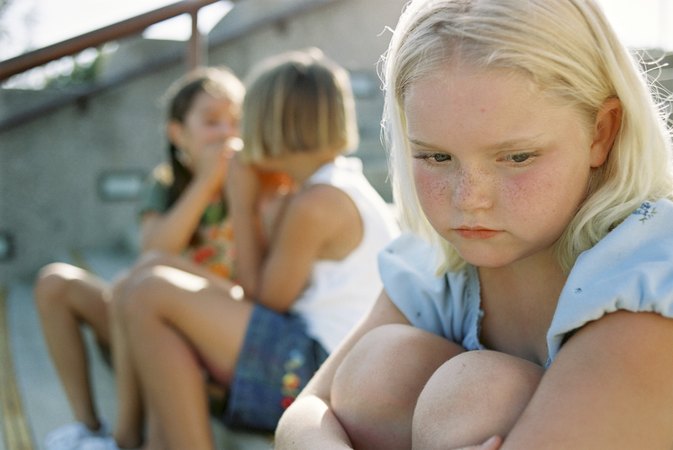Children Care About Their Reputations - As Young as Five Years Old
 |
| Source: Livestrong.com |
Don't know about you. But I find people fascinating. As in, really?
People do that?
Sacre' merde, they do?
Who'd a thunk?
So now a study reveals that people as young as five years old are aware of having a reputation. And caring about it.
I've always been an odd man out when it comes to reputation. I simply am not aware of what people think of me, and never have. It's not that I don't care, I do care. Quite a bit. I just don't think about it. Example: My friends were surprised when I recently started shaving my head again. I had shaved my head for some years, but let it grow back in about three years ago. I just shaved it because, and this is the truth, not because I was trying to change my image. No, I was out of shampoo. They laughed when I told them that, which surprised me. I wasn't making a joke. Understand the difference? But normal people, which is a broad, ill-defined concept, tend to be aware of their reputations.
(I have no concept of money, either. I can refer you to my ex-wives who will happily tell you that I haven't a clue.) Back to the idea that children are aware of their reputations. That makes sense. But starting in kindergarten?
Well, here's the research. Something to think about while developing a character for your next opus. Or for Berkeley Breathed as he develops his cartoon characters.
Enjoy.
* * * * *
We start caring about our
reputations as early as kindergarten
Kindergartners don't use social media, but they do care about their public image. By the time kids go to elementary school, they're thinking critically about their reputation. Psychologists consider how our fascination with social status begins around age five, when kids begin to consider how they are viewed by others and behave in ways that cultivate positive reputations.
"Psychologists have been long interested in how we construct our identities and the sorts of strategies that we use to present ourselves in society," says Alex Shaw, an assistant professor of developmental psychology at the University of Chicago. "We're finding that the kinds of complex and strategic self-presentation behavior we see in adults appear at a much younger age than previously known."
Research shows that a child's awareness of social standing cascades down from adults and spans across cultures, despite varying social norms and expectations. Like grownups, kids want to be accepted by those they admire. Interactive experiences like sharing toys, working in a team, and listening to a teacher may provide opportunities for children to learn about what constitutes a desirable reputation and the kinds of strategies that are effective for building a good reputation in their social environment.
"As a society, we're heavily focused on image construction and self-presentation, and our children get early, condensed exposure to the idea of image and social status," says Ike Silver, a doctoral student at the Wharton School of Business at the University of Pennsylvania. "Children are sensitive to how those around them behave, including adults who highly value their reputations."
Five-year-olds aren't just aware of their reputations, they also behave strategically to alter their outward image. Researchers believe that children will vary their behavior in order to appear moral or socially good in the eyes of key observers. While we know that adults use a large variety of traits to manage and create impressions, we don't yet know whether children understand and use the fact that different traits (bravery, wealthy, nonconformism) are valuable at different times to different audiences. It's important for us to further consider where in this process children succeed in controlling their reputation and where they struggle.
Scientists hope to further investigate how social environments and image-conscious cultures affect the emergence of reputation awareness in our youth.
"Moving forward, a question we're thinking about is, 'What happens even earlier than age five?' We don't believe children show up to the first day of kindergarten and have the idea of reputation suddenly pop into existence." Silver argues, "As we start to understand that reputational strategies emerge before the age of 9 as was previously believed, the next logical question is, 'what happens even earlier?'"
Story Source: Materials provided by Cell Press. Silver and Shaw. Pint-sized public relations: The development of reputation management. Trends in Cognitive Sciences, 2018

Comments
Post a Comment